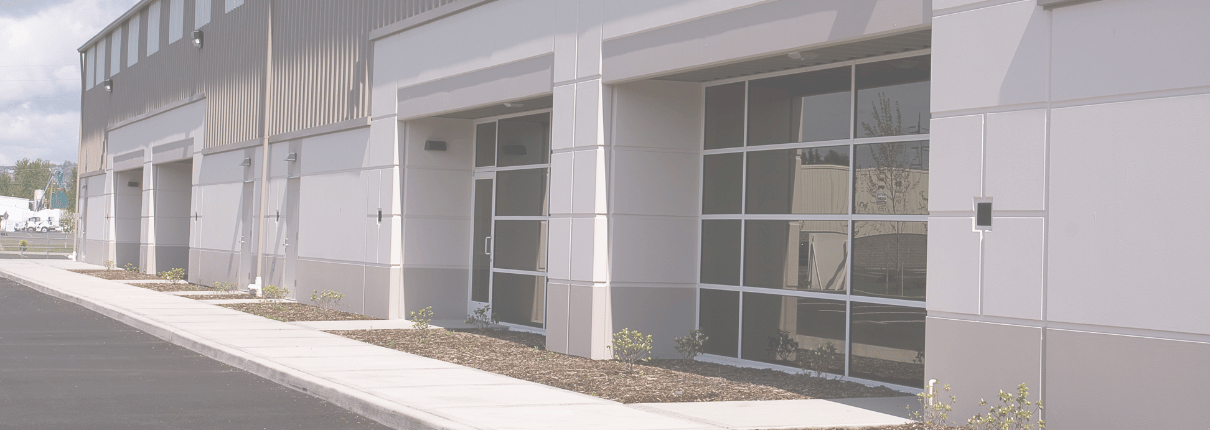Why Business Rates Reduction Strategies Are Important for Landlords
When a commercial property becomes vacant due to the end of a lease, for example, it is clearly in a landlord’s interest to minimise any period of vacancy before they find a new tenant and sign any new agreement. However, we know we do not live in a perfect world, and despite everyone’s best efforts, commercial properties occasionally fall into periods of unoccupancy. During these periods, the landlord becomes liable for local business rates.
The good news is that this liability is not immediately applied. Most businesses can enjoy a three-month business rates relief period. For industrial premises, such as workshops, the relief period doubles to six months. For smaller buildings, with a rateable value of under £2,900, the rates relief period lasts throughout the empty period. The same is true for listed buildings and buildings owned by charities or community good causes, as long as they aren’t used commercially.
The vast majority of commercial property owners will have to pay business rates after a three-month window of rates relief ends unless they come up with a more long-term business rates reduction strategy.
Business Rates Reduction Options For Landlords
When facing the additional burden of business rates on a vacant property, landlords often explore a variety of strategies to minimise costs. Techniques like “box shifting” – moving temporary structures or storage units to imply temporary occupancy within the property to reset the empty property relief period have a long, troubled history. Today, such tactics draw scrutiny from local authorities, and new laws aim to prevent them.
Another tactic to achieve empty property rates reduction involves designating the property for an alternative use, such as registering it as a place of worship or an agricultural site, which can offer business rate exemptions. Change of use, even if temporary, can involve complex legal hurdles. It can also carry a reputational risk. Any plan perceived as disingenuous can harm landlords, earning them a poor reputation in their communities.
A more sustainable and ethical option is to donate an otherwise empty space temporarily to a charity or a good cause. By allowing a nonprofit to genuinely occupy the property, landlords not only achieve legitimate business rate reductions but also contribute positively to the community and enhance their corporate social responsibility profile.
How to Save Money On A Vacant Property Ethically
After the initial exemption period, business rates can return to full value for many businesses, creating substantial ongoing costs for landlords. However, by working with charities through ASTOP, landlords can:
- Reduce or eliminate business rates liability
- Support local charities, not-for-profits & community groups
- Gain approval from local authorities and the wider public
Because there is a community benefit to our approach to business rate reductions, ASTOP typically works with local authority approval and often with their active support. This is a rates reduction strategy that landlords can adopt with confidence, knowing it will be well-received by stakeholders.
Enhancing Your Property’s Value
Buildings left unoccupied, without tenants, risk quickly falling into disrepair. They become targets for vandalism, crime, antisocial behaviour, squatting and other forms of illegal occupation. Keeping a property occupied, even temporarily, enhances its security and goes a long way in helping it retain its condition and value. It’s easier to find a tenant for a property that already has a tenant, even a temporary one. This is because occupied properties are generally better maintained, more attractive to future tenants, and less likely to depreciate in value. This is another reason working with a charity or good cause partner is a strong business rate reduction strategy.
Gaining Positive PR & CSR Benefits
Allowing charities to use your vacant property not only saves you money and protects your property, but it can also enhance your brand’s reputation. Donating space to a charity or not-for-profit organisation demonstrates a strong commitment to corporate social responsibility (CSR), earning goodwill among communities, local authorities, and, especially helpfully, prospective tenants. Publicly partnering with charities, especially one that aligns with your organisational goals, can generate positive PR opportunities and help fulfil your business’s community objectives.
How ASTOP Facilitates Business Rates Reduction for Landlords
ASTOP serves as a bridge between property owners and the not-for-profit and charity sector. Our skill, formed through many years of experience, is matching landlords with empty properties and business rate liabilities with trusted charities and social enterprises that require temporary office, retail, or storage spaces. These charities genuinely use the premises for their operations, ensuring compliance with regulations and maximising community benefit. Our established relationships with reputable charities and wide UK network of contacts make the matching process smooth, quick, and secure.
Short-Term, Flexible Leasing Arrangements
Landlords often hesitate to offer space due to fears surrounding long-term commitments or tying up a property for too long a period. Our approach to commercial property business rates mitigation addresses this concern through short-term, flexible month-by-month leasing agreements.
Our model ensures:
- Charities can occupy with short notice and vacate easily
- Landlords retain control over their property timelines
- Full compliance with business rates mitigation strategies
Flexibility is key to ASTOP’s success. The landlords we work with stay in charge while still benefiting from significant rate reductions. We understand the nuances around charities using vacant commercial properties for short-term benefits and can steer both parties to mutually beneficial agreements and genuinely win-win scenarios.
Clear and Transparent Tenancy Agreements
Transparency is essential to protect all parties involved. ASTOP navigates landlords and tenants through all the legal documentation required to take advantage of our ethical business rates reduction strategies. Our experts ensure compliance with regulations and provide landlords with peace of mind that all is well. Letting ASTOP manage the paperwork frees up your time and administrative burden. This allows you to focus on your day job, leaving the details to us.
How ASTOP Delivers Landlord Business Rates Savings
Imagine you are an office block owner faced with a long-term vacancy due to market downturns. Working with ASTOP, we could lease several floors to social enterprises focusing on youth employment in the region. Not only would you achieve substantial business rate reductions, but you’d reduce the risk of your property falling prey to crime, vandalism, or antisocial behaviour. You could also enjoy positive media coverage, positioning yourself as a community-minded business leader supporting local causes.
Similarly, imagine you own a large retail unit that became vacant after a tenant’s unexpected departure. Business rates alone form a heavy burden while seeking new occupants. By partnering with ASTOP, you may temporarily lease the space to a local community charity and alleviate that burden. Meanwhile, the property’s security improved thanks to regular activity, and future tenants were attracted by its well-maintained condition.
Contact ASTOP To Start Your Business Rate Reduction Journey
As a landlord, getting started is simple. Speak to our director, Shayelsh Patel, to learn more. We have successfully helped hundreds of landlords save on business rates. We provide access to an unbeatable, broad network of trusted UK charities, not-for-profits and community groups. Importantly, all our arrangements meet local authority requirements and legal standards. ASTOP services offer ethical rate reductions that create real positive change in communities while improving your bottom line.
Business Rates Reduction FAQs
Is this approach to business rates reduction legal?
Yes. UK law allows landlords to mitigate business rates if properties are genuinely occupied for charitable purposes. ASTOP ensures every arrangement is fully compliant.
How quickly can a charity move in?
Our streamlined process means charities can often occupy properties within a few weeks, depending on property readiness and charity needs.




